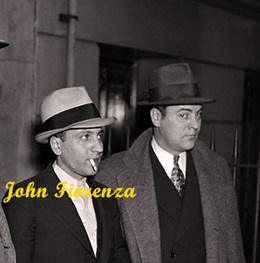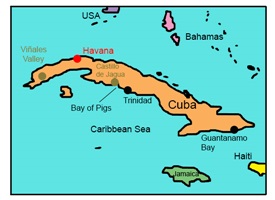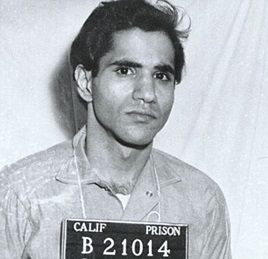Daily History Lesson … April 17
History is a kind of introduction to more interesting people than we can possibly meet in our restricted lives; let us not neglect the opportunity.
~Dexter Perkins
1790 – American statesman, printer, scientist, and writer Benjamin Franklin died in Philadelphia at the age of 84.

1864 – The state of Virginia’s secession convention voted to secede from the United States, becoming the 8th state to join the Confederate States of America. The following day, Union Colonel Robert E, Lee was offered a role as major general to command the defense of Washington by presidential advisor Francis P. Blair. Lee replied: Mr. Blair, I look upon secession as anarchy. If I owned the four millions of slaves in the South I would sacrifice them all to the Union; but how can I draw my sword upon Virginia, my native state?
Although privately opposed to secession as “nothing but revolution and an unconstitutional betrayal of the efforts of the Founding Fathers,” Lee resigned his position three days later and took up command of the Virginia state forces.

1936 – After a week of tracking down every conceivable lead, police finally found the evidence they needed in order to break the case of Nancy Titterton’s rape-murder in New York City. Titterton had been raped and strangled on the morning of April 10. The only clues left behind were a foot-long piece of cord that had been used to tie Titterton’s hands and a horsehair – one single horsehair – found on her bedspread.
The cord was finally found to have come from Hanover Cordage Company in York, Pennsylvania. Company records showed that some of the distinctive cord had been sold to Theodore Kruger’s upholstery shop in New York City. Kruger and his assistant, John Fiorenza, were the first to discover Titterton’s body when they arrived to return a repaired couch which had been stuffed with horsehair that matched the one – remember that single horsehair? – found at the crime scene on the afternoon of April 10. However, they both denied entering the bedroom that day.
When investigators learned that Fiorenza had been at the Titterton house on April 9 and had been late for work the morning of the murder, they looked deeper into his background. Fiorenza had four prior arrests for theft and had been diagnosed as delusional by a prison psychiatrist. Caught by surprise, Fiorenza confessed to the brutal crime but claimed that he was temporarily insane. This defense didn’t hold up too well at his trial. He was executed on January 22, 1937.
1941 – Representatives of Yugoslavia’s various regions signed an armistice with Nazi Germany at Belgrade, ending 11 days of futile resistance against the invading German Wehrmacht. More than 300,000 Yugoslav officers and soldiers were taken prisoner. Only 200 Germans died in the conquest of Yugoslavia.

1961 – The Bay of Pigs invasion began when a CIA-financed and trained group of Cuban refugees landed in Cuba and attempted to topple the communist government of Fidel Castro. The attack was a complete failure.
Though many of his military advisers indicated that an amphibious assault on Cuba by a group of lightly armed exiles had little chance for success, President John F. Kennedy gave the go-ahead for the attack. 1,500 exiles, armed with American weapons and using American landing craft, waded ashore at the Bay of Pigs in Cuba. The plan immediately fell apart when the landing force met unexpectedly rapid counterattacks from Castro’s military. The United States refrained from providing necessary air support. Over 100 of the attackers were killed, and more than 1,100 were captured.
The failure at the Bay of Pigs cost the United States dearly. Castro used the attack to solidify his power in Cuba and he requested additional Soviet military aid. Eventually that aid included missiles, and the construction of missile bases in Cuba sparked the Cuban Missile Crisis of October 1962, when the United States and the Soviet Union nearly came to blows over the issue. Kennedy tried to redeem himself by publicly accepting blame for the attack and its subsequent failure, but the botched mission left the young president looking vulnerable and indecisive.

1964 – The Ford Mustang, a two-seat, mid-engine sports car, was officially unveiled by Henry Ford II at the World’s Fair in Flushing Meadows, New York. That same day, the new car also debuted in Ford showrooms across America and almost 22,000 Mustangs were immediately snapped up by buyers.

1969 – Sirhan Sirhan was convicted for the 1968 assassination of Sen. Robert Kennedy. Six days later, he was sentenced to death in the gas chamber. Three years later, his sentence was commuted to life in prison, owing to the California Supreme Court’s decision, which ruled capital punishment a violation of the California Constitution’s prohibition of cruel and unusual punishment.

1970 – With the world anxiously watching, Apollo 13, a U.S. lunar spacecraft that suffered a severe malfunction on its journey to the moon – causing an aborted landing – safely returned to Earth.
On April 13, two days into the mission, disaster had struck 200,000 miles from Earth when oxygen tank No. 2 blew up after a routine procedure, called a “cryo stir,” designed to stop supercold gas from settling into layers inside the tank, had gone terribly wrong.
According to the mission transcript, the actual words uttered by astronaut Jack Swigert were “Hey, we’ve got a problem here.” Ground control responded by saying “This is Houston, say again please.” Flight Commander Jim Lovell then repeated, “Houston, we’ve had a problem.” It was discovered that the normal supply of oxygen, electricity, light, and water had been disrupted.
The landing mission was aborted, and the astronauts and controllers on Earth scrambled to come up with emergency procedures. The crippled spacecraft continued to the moon, circled it, and began a long, cold journey back to Earth.
1986 – Netherlands & The Isles of Scilly (located off the southwest coast of Great Britain) signed a peace treaty. No one seemed to know or care what started the war. No one was actually sure if a shot had ever been fired. In any event, the peace treaty brought an official end to the War of 1651 … 335 years after it began (if it ever really had).

2016 – Actress Doris Roberts (Remington Steele, The Honeymoon Killers, but best known for her role in Everybody Loves Raymond) died at the age of 90.
Compiled by Ray Lemire ©2017 RayLemire.com. / Streamingoldies.com. All Rights Reserved.